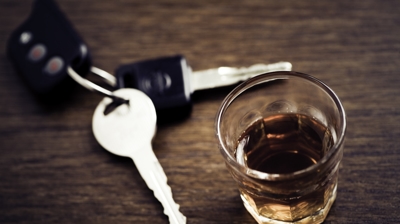
Express Consent Hearings in Colorado
What Is an Express Consent Hearing?
In addition to criminal penalties, a person charged with an alcohol-related driving offense in Colorado will face administrative consequences from the DMV. The DMV can revoke or suspend a person's privilege to drive, even if the person does not possess a Colorado driver's license. The express consent hearing is a preponderance of evidence hearing that determines whether a person operated a motor vehicle with a blood alcohol content of .08 or more at the time of driving or within two hours of driving; or whether a person refused to take, complete or cooperate in completing a blood or breath test as required by Colorado’s express consent law.
Colorado express consent hearings are ruled on by DMV hearing officers and are judged on a preponderance standard. This is a very low standard for the state to prove and thus the success of these hearings is often less than desired. However, this hearing will only determine the status of your driving privileges in Colorado.
This hearing is completely separate from your criminal proceedings, and winning an administrative license hearing does not mean your criminal case will be dismissed and vice versa. The Hearing Officer at the DMV gets paid to revoke people's driving privileges and will do everything they can to revoke yours. It is that simple.
Why You Should Request an Express Consent Hearing
Clients often ask us why they should request a hearing or what the benefit would be. As most DUI attorneys know, it is very difficult to have your case dismissed at the DMV. The express consent hearing is a preponderance hearing and is presided over by a DMV hearing officer. You are guilty until proven innocent at this hearing. So why go through the trouble to request a hearing? The answer is simple; you don't win any fights you don't get into.
The only way to save your license is by requesting this hearing and preparing a defense.
A good lawyer will have a strategy for these hearings. This is also a great opportunity to get the officer's testimony under oath and use that testimony to impeach the officer in the criminal case. We win more criminal cases as a result of testimony elicited at the DMV than we do for any other reasons. Having this hearing is a critical part of your case and, while you may not win the hearing, sometimes you have to lose the battle to win the war.
However, you should know that the DMV hearing process is generally unfavorable. Since your express consent hearing is not technically a criminal matter, you will have very few constitutional rights. You can even be called as a witness against yourself. The DMV hearing officer is not a judge, and probably not even a lawyer. In fact, the hearing officer is a paid DMV employee who serves as both the prosecutor and judge in your case.
All that being said, there are a number of good things that can happen at a DMV hearing, and it would be a serious mistake to waive your right to a hearing or appear at the hearing without a qualified defense attorney.
A few of the benefits of requesting a DMV hearing include:
- The hearing may be conducted by telephone in some cases, so you don't have to miss work.
- There is no risk. The worst thing that can happen is that your license is suspended for the statutory period, which would have happened anyway. If you have nothing to lose, there's no reason not to try.
- The hearing officer may find in your favor and allow you to maintain your license.
- The hearing officer may throw out the matter on a technicality.
- If the hearing officer finds that there is not enough evidence to suspend your driver's license, the prosecutor is going to have a hard time proving that you are guilty of DUI or DWAI in your criminal case.
- The DMV hearing serves as an opportunity to question the police officer under oath. Instead of paying hundreds of dollars to depose the officer, your attorney can take the officer’s deposition for free.
In our opinion, any attorney who tells you not to request an express consent hearing is giving you very poor advice. Do not hire these attorneys – they are afraid to fight and do not understand the value of cross examination.
Will My Colorado Driver’s License Be Revoked?
Upon conclusion of your express consent hearing, the hearing officer will make a decision based upon evidence presented at the hearing. The hearing officer will either revoke your driving privileges or dismiss the case.
Your guilt will be based on the following criteria:
- Were you in actual physical control of a motor vehicle in the state of Colorado?
- Did the officer have a lawful reason to contact you?
- Did the officer have probable cause to require you to take a chemical test?
- Was the chemical test conducted within substantial compliance and was the test failed?
- Were you properly advised of Colorado Express Consent Law?
- Did you refuse to take a test or to cooperate in the taking of a test?
If it is more likely than not that the above are true, the hearing officer will revoke your driving privileges. That is why you need an experienced DUI attorney to protect your rights and defend your driving privileges.
How Long Do I Have to Request a Hearing with the DMV?
If your blood or breath test result was .08 or greater, or if you refused or were deemed to have refused testing, you must request a hearing within seven calendar days of your arrest in order to preserve the right to a DMV hearing. If you fail to do so, you forfeit your right to a hearing and your driving privileges will automatically be revoked.
If you took to a blood test, you are awaiting a letter in the mail called an “Order of Revocation.” If the results of your blood test indicate your BAC was .08 or higher, you will receive this letter from the Colorado DMV. You then have 10 days from the postmarked date of that letter to surrender your license and request a hearing.
If you fail to surrender your driver's license at the time you request your hearing, the DMV will not grant you a temporary 60-day driving permit. If you fail to request an express consent hearing within the proper time frame, your driving privileges will automatically be revoked and you will have waived your right to a hearing.
If you are waiting on an Order of Revocation letter, you must ensure that the DMV has your correct mailing address. It does not matter if you gave the police officer your correct address; you must also officially update your address with the Colorado DMV through a change of address form or by submitting a change of address online.
How to Request a DMV Hearing If You Took a Blood Test
You can go to any full-service DMV location that offers driver's license services in order to request hearing. Get in line for Driver Services/Licenses. If you do not have a state ID or another picture ID (other than your driver's license), get into the line while you are waiting for the Driver Services/Licenses and obtain a state ID.
They may say you cannot have a state ID and a driver's license at the same time. Inform them that you will be surrendering your driver's license momentarily. Once called by Driver Services/Licenses, go to the window and hand them the letter you received titled “Order of Revocation” and also give them your driver's license.
You will then request an express consent hearing on your alleged DUI. The DMV will give you a yellow carbon copy document that will serve as your 60-day driving permit. This document is called a Request for Administrative Hearing Pursuant to Notice of Revocation for Express Consent. This is now your driver's license.
Do not drive without this temporary license in your possession. This license does not have restrictions, except that it is a paper license and not a hard copy.
You are now waiting on the Colorado DMV to send you a final letter called a "Notice of Hearing." This letter will tell you the time, date and location of your express consent hearing. If you fail to notify the DMV of your correct mailing address, you may not receive this letter and thus you will not be present for your hearing.
What to Do If You Took a Breath Test or Refused a Test
Upon being released from jail, detox, the hospital, or some other form of custody, you should have been given a document titled Express Consent Affidavit and Notice of Revocation. This is often a yellow carbon copy document or a white piece of paper. The police officer should have confiscated your driver's license as well.
The Express Consent Affidavit and Notice of Revocation is your seven-day driving permit. You must report to the DMV within seven days and request a hearing or you will automatically lose the right a hearing. You would also lose your license for nine months in a first offense case or one year for a second / third offense or a refusal.
Do not wait until the last day! Go and request your hearing well in advance of the date.
Want to Save Your License? Call Orr Law Firm for Help.
While DMV hearing officers are supposed to be neutral and impartial, they are far from it. Make no mistake about it, these hearing officers get paid to revoke your driving privileges. You need a qualified DUI defense lawyer to represent you at this hearing. Do not make the mistake of trying to handle this process on your own.
For a FREE phone consultation with a Denver DMV hearing lawyer, contact the Orr Law Firm today at (303) 747-4247. We are committed to your defense.

What Sets Us Apart From The Rest?
Orr Law Firm is here to help you get the results you need with a team you can trust.
-
Offer Free Consultations and Payment Plans
-
Proven Record of Dismissals, Reductions, and Acquittals
-
Highly-Qualified Defenders Who Know How to Fight for Results
-
Award-Winning Advocacy from Top Trial Lawyers in the Nation



.2409061529588.jpg)